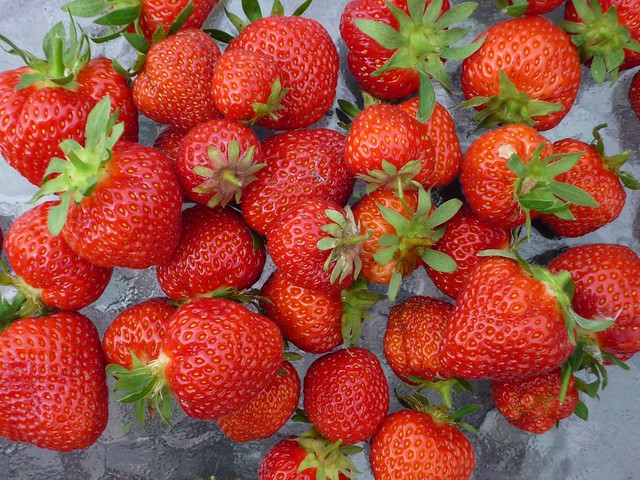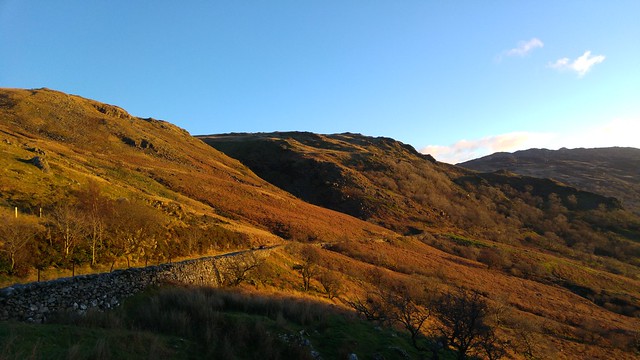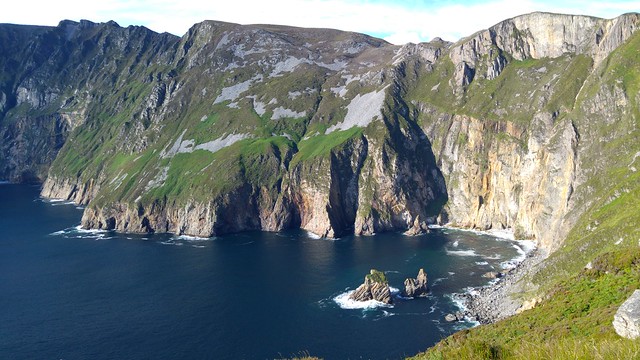Words for wild and related words, in Celtic languages.
| Proto-Celtic | *wēdus/*weido- [ˈweː.dus] = wild *weido-mokku- wild pig |
|---|---|
| Old Irish (Goídelc) | fíad [fʲiːa̯ð] = wasteland, wilderness; uncultivated land, territory, land |
| Irish (Gaeilge) | fia [fʲiːɾˠ] = waste, wilderness; land, territory fiabheatha = wildlife fiáin = wild, uncultivated, undomesticated, uncontrolled, tempestuous, intensely eager fiánta = wild, fierce, savage fiántas = wildness, fierceness, savageness; wilderness fiata = wild, fierce, angry; shy fiatacht = wildness, fierceness, sternness, anger fiatúil = wild, coarse, rough |
| Scottish Gaelic (Gàidhlig) | fiadh [fiəɣ] = lord; wildness, wilderness (archaic) fiadhan [fiə.an] = wildness, shyness, feral fiadhaich [fiə.ɪç] = untamed, uncultivated, wild; fierce; off (food & drink); extremely fiadhaichead [fiə.ɪçəd] = savageness, wildness, savagery fiadhain [fia.ɛn̯ʲ] = wild, untamed fiadhtachd [fiəhdəxg] = wildness, fierceness faoileachail [fɯːləxal] = wild, savage |
| Manx (Gaelg) | feie = natural, wild, savage faasagh = wild, desolate, wilderness, waste place, desert feiar, feiaragh = savage |
| Proto-Brythonic | *guɨð = wild |
| Middle Welsh (Kymraec) | gŵydd, gvyd = rude (uncultivated), savage, wild |
| Welsh (Cymraeg) | gŵydd [ɡuːɨ̯ð/ɡʊi̯ð] = wild, untamed, savage, untilled, uncultivated, woody, overgrown, desolate, desert; unploughed land, fallow land |
| Old Cornish | guir = wild |
| Middle Cornish | gwyr, guyr = wild |
| Cornish (Kernewek) | goodh = wild |
| Old Breton | guoid, guoed = wild |
| Middle Breton | goez = wild |
| Breton (Brezhoneg) | gouez = wild, fierce, ferocious, brutal, rustic |
Etmology: possibly from the Proto-Indo-European *weydʰ- (wood, wilderness). Words for Gael(ic) come from the same root [source].
Disambiguation
There are several words in Welsh similar to gŵydd, each of which has different meanings and origins:
- gŵydd = wild, untamed, savage
- gŵydd = presence, sight, face, from the Proto-Celtic *wēdos (sight, presence) [source]
- gŵydd = goose, simpleton. From the Proto-Celtic *gesdā (goose) [source]
- gŵydd = grave, sepulchre, burial-mound, tumulus. Possibly related to gwŷdd (tree), or to gŵydd (wild)
- gwŷdd/gŵydd = knowledge, science. Related to gwybod (to know)
- gwŷdd = tree(s), branches, twigs, forest, woods, shrub(s), lineage. From the Proto-Celtic *widus (wood, trees) [more details]
- gwëydd/gwehydd/gwŷdd = weaver, composer of poetry, weaver of songs. From gwau (to weave), from the Proto-Celtic *wegyeti (to weave) [source]
| Proto-Celtic | *gʷeltis wild |
|---|---|
| Old Irish (Goídelc) | geilt [fʲiːa̯ð] = wasteland, wilderness; uncultivated land, territory, land |
| Middle Irish (Gaoidhealg) | geilt/gelt = madman, lunatic |
| Irish (Gaeilge) | gealt [ɟal̪ˠt̪ˠ] = crazy person, lunatic; panic-stricken person, naked fugitive gealtach = crazed, insane, wild, panic-stricken person or animal gealtachas = craziness, lunacy, panic, terror gealtacht = lunacy, insanity, wildness, panic gealtlann = lunatic asylum gealtra = (gang of) wild, mischievous children |
| Scottish Gaelic (Gàidhlig) | geilt [gʲeldʲ] = terror, fear, dread, skittishness gaelachan [gʲal̪ˠəxan] = lunatic tinneas na gealaich = lunacy, madness, insanity (archaic) |
| Manx (Gaelg) | doghanagh = ill, diseased, disoredered, morbid, sickly eayst-ghoghanagh = lunatic far-ghoghanagh = malingerer |
| Proto-Brythonic | *gwɨlt [ˈɡwiːr] = wild |
| Middle Welsh (Kymraec) | guyll, gwyllt = rude (uncultivated), savage, wild |
| Welsh (Cymraeg) | gwyllt [ɡwɨːɬt/ɡwɪɬt] = wild, timid, untamed, angry, furious, fierce; uncultivated, uninhabited, desolate, desert; stormy, tempestuous, raging, turbulent gwylltineb = wildness, rashness, rage, fury gwylltio = to lose one’s temper, be scared, flee, grow wild gwylltaidd = wildish, turbulent, unruly, irresponsible gwylltâf/gwylltáu = to become wild, grow wild |
| Old Cornish | guill = wild |
| Cornish (Kernewek) | gwyls = wild, fierce, savage, violent gwylvos = wilderness |
| Old Breton | gueld = wild, untamed |
Etmology: from the Proto-Indo-European *gʷʰel-t- [source].
Words marked with a * are reconstructions.
Sources: Wiktionary, Am Faclair Beag, Online Manx Dictionary, Teanglann.ie, eDIL – Electronic Dictionary of the Irish Language, In Dúil Bélrai English – Old Irish glossary, Geiriadur Prifysgol Cymru, Gerlyver Kernewek, Dictionaire Favereau, TermOfis, English – ProtoCeltic WordList (PDF)














